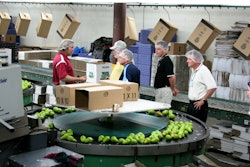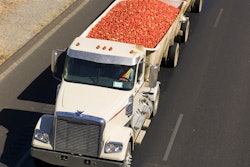
With the most extensive food safety regulations in history set to take effect soon, state agriculture officials across the country are preparing to enforce the federal law, but say their ability to inspect farms and enforce the new standards depends on the receipt of promised federal funds, according to Stateline, an initiative of the Pew Charitable Trust.
The law — which Congress approved in 2010 following several high-profile outbreaks of foodborne illnesses, linked to contaminated spinach, tomatoes and peanut products — comes at a time when demand for fresh vegetables is increasing. And it marks a shift in focus for the nation’s food safety system, from containing foodborne illnesses once they occur to preventing those outbreaks in the first place.
It gives the U.S. Food and Drug Administration new authority to regulate the production of fresh fruit and vegetables. It also imposes the same food safety standards on imports as it does on domestic foods, and includes provisions to create a more integrated food safety system across all levels of government — federal, state and local.
The law, known as the FDA Food Safety Modernization Act (FSMA) and set to take effect gradually through 2020, applies to all farms except meat, poultry and egg producers. Farms that have less than $500,000 in annual sales are not covered, although their buyers may insist that they adhere to the same standards.
To read more, click here.
Editors Insight: Food industry observers have long noted that the new food safety laws are important, but they are concerned about how the laws will be enforced. State officials have been pointing out they don’t have the resources to enforce the new rules.
One positive sign is that the U.S. Department of Agriculture recently announced the availability of $4.7 million in grants for food safety education, training and technical assistance to address the needs of small- to mid-size farms, Food Logistics reported Tuesday.
The FSMA marks a new level of federal oversight over the safety of produce in the supply chain. While questions remain over how effectively the transportation safety rules will be enforced, the produce industry has already taken a number of steps to strengthen its safety practices. The May issue of Food Logistics will explore some of these measures. Overall, the majority of growers, shippers and carriers say they are confident in the industry’s ability to manage expanding produce capacity. 4-22-16 By Elliot Maras

















